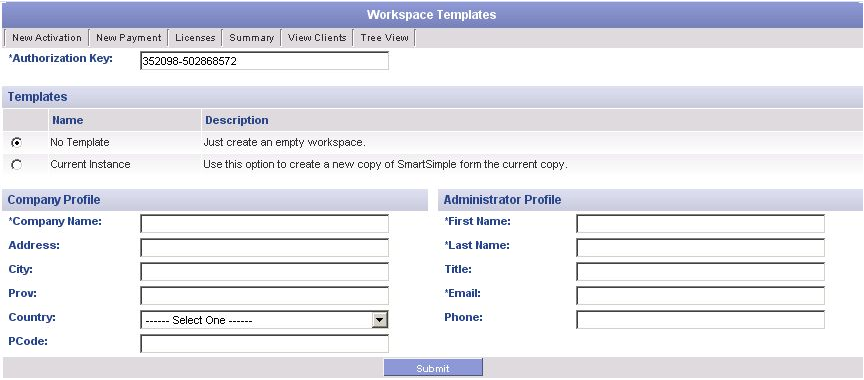Activating an Instance
If your instance is designated as a partner instance you have the ability to create and manage free standing instances "under" your own.
- Instances created in this manner are completely independent of your own and each can be configured as required.
- There is no commonality of users, contacts, UTAs, roles, fields, etc.
- The only way of moving data between instances is by configuring Object Synchronisation or UTA Exchange.
- You can, however, see the names of people logging into these instances through Usage Statistics reports, but for anything else you would have to log into the instance.
Use the following steps to activate an instance:
1. Choose the Configuration, Global Settings menu.
2. Click the Licensing tab.
3. Click the New Activation tab.
There are multiple template options, but the most suitable may be:
No Template - Just an empty instance.
Current Instance - Clone your instance into the new instance. Most structure will be cloned (some items such as list views in the UTA will not get cloned).
4. Set the Name and Address details for the new instance.
5. Set the details of the Administrator (the email will be sent to the email address designated).
6. Click the Submit button.
- New instance details are displayed Client, Alias (temporary numeric), number of licenses.
- The email will be sent through the Email Agent (Gort - Email Agent status) so this process needs to be running.
- When the email arrives, note the link - this is the temporary numeric alias and the default domain (domain is not applicable).
- The system generated password will also be in the email.
- To access the new instance you can use the URL provided.
If you clone the blank template, the first thing to do when you log in is set the colour settings as there is no initial formatting. You can use Global Settings, Colours and Fonts, Reset Visual Settings to apply the "standard" SmartSimple colours.
